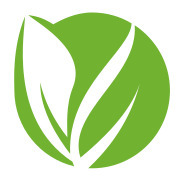The Role of Diet in Lowering High Blood Pressure
High blood pressure, also known as hypertension, is a common health condition that affects millions of people worldwide. It is often referred to as the “silent killer” because it usually does not cause any symptoms until it reaches a dangerous level. If left untreated, high blood pressure can lead to serious health problems such as heart disease, stroke, and kidney disease. While there are various factors that contribute to high blood pressure, one important aspect to consider is diet.
Understanding High Blood Pressure
Before we delve into the role of diet in lowering high blood pressure, let’s first understand what high blood pressure is. Blood pressure is the force of blood against the walls of your arteries as your heart pumps it around your body. When this force is consistently too high, it puts strain on your arteries and organs, leading to health problems.
There are two numbers used to measure blood pressure: systolic pressure and diastolic pressure. The systolic pressure is the higher number and represents the force when the heart contracts. The diastolic pressure is the lower number and represents the force when the heart is at rest between beats. A normal blood pressure reading is around 120/80 mmHg. High blood pressure is typically defined as a reading of 130/80 mmHg or higher.
The Impact of Diet on Blood Pressure
Research has shown that certain dietary patterns can have a significant impact on blood pressure levels. A healthy diet can help lower high blood pressure and reduce the risk of developing hypertension. Here are some key dietary factors to consider:
1. Sodium Intake
One of the most important dietary factors to manage when it comes to high blood pressure is sodium intake. Sodium, commonly found in table salt and processed foods, can cause fluid retention and increase blood pressure. It is recommended to limit sodium intake to no more than 2,300 milligrams (mg) per day, or even lower for individuals with hypertension or prehypertension. To reduce sodium in your diet, opt for fresh, whole foods and avoid processed and packaged foods that are high in sodium.
2. Potassium-Rich Foods
Increasing your intake of potassium-rich foods can help lower blood pressure. Potassium helps balance the effects of sodium in your body and relaxes blood vessel walls, reducing the strain on your cardiovascular system. Good sources of potassium include fruits such as bananas, oranges, and avocados, as well as vegetables like spinach, sweet potatoes, and tomatoes.
3. Magnesium-Rich Foods
Magnesium is another mineral that plays a role in regulating blood pressure. It helps relax blood vessels and improve blood flow. Including magnesium-rich foods in your diet, such as leafy green vegetables, nuts, seeds, and whole grains, can be beneficial for managing high blood pressure.
4. The DASH Diet
The Dietary Approaches to Stop Hypertension (DASH) diet is a well-known eating plan that has been proven effective in lowering blood pressure. The DASH diet emphasizes fruits, vegetables, whole grains, lean proteins, and low-fat dairy products. It also encourages reducing sodium intake and limiting the consumption of sugary beverages and foods high in saturated and trans fats.
Other Dietary Considerations
In addition to the specific factors mentioned above, there are other dietary considerations that can help lower high blood pressure:
1. Limit Alcohol Consumption
Excessive alcohol consumption can raise blood pressure and also reduce the effectiveness of blood pressure medications. It is recommended to limit alcohol intake to moderate levels, which means up to one drink per day for women and up to two drinks per day for men.
2. Maintain a Healthy Weight
Being overweight or obese increases the risk of developing high blood pressure. Losing excess weight through a balanced diet and regular physical activity can help lower blood pressure and improve overall health.
3. Reduce Caffeine Intake
While the effects of caffeine on blood pressure are still debated, it is advisable to limit caffeine intake, especially if you are sensitive to its effects. Caffeine can temporarily raise blood pressure, so it may be beneficial to reduce consumption of coffee, tea, energy drinks, and other caffeinated beverages.
Conclusion
Diet plays a crucial role in managing and lowering high blood pressure. By adopting a healthy eating pattern that includes reducing sodium intake, increasing potassium and magnesium-rich foods, following the DASH diet, and considering other dietary factors, you can effectively lower your blood pressure and reduce the risk of complications associated with hypertension. Remember to consult with a healthcare professional or registered dietitian for personalized advice and guidance based on your individual needs and health condition.

